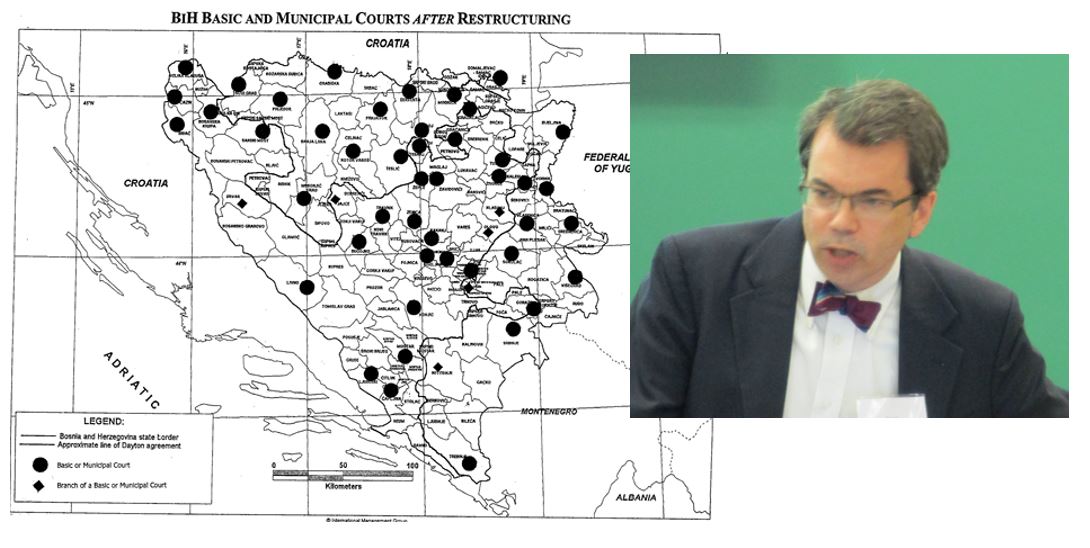Parties engaged in rule of law reform in general, and court reform in particular, have focused on the importance of establishing judicial independence for the judiciary. Independence, for the reformers, usually means that the judges are appointed, and the courts are governed, by a non-political, non-partisan authority, to free the courts from political influence. I argue that this emphasis on “structural” independence is misplaced, and that independence is something more personal to the judge – whether the judge allows herself to be influenced by political (or other) forces. When we redefine independence in this way, we find that the archetypical tension between independence and accountability evaporates, and the priorities of judicial reform initiatives shift to more meaningful considerations than mere structure.
David Pimentel is a Professor of Law at University of Idaho, in the United States, studying this year in the Law and Politics program at UniGraz. He studied economics and law at Brigham Young University, University of California, Berkeley, and Harvard Law School, and has his M.A. and J.D. degrees from Berkeley. Before beginning his academic career in 2007, he worked for the United Nations, overseeing Court Management and Legal Aid at the International Criminal Tribunal for the former Yugoslavia, and directing Rule of Law activity in South Sudan for the U.N. Mission there. He has also led court reform projects, most notably, in Bosnia and Herzegovina in 2002, returning to Sarajevo in 2010-11 as a Fulbright Scholar to study the impact of post-war court reform in Bosnia. He also has two years of experience in the private practice of law, with a large firm in Seattle, representing the Boeing corporation, inter alia, and over 10 years’ experience in court administration at all levels of the federal courts of the United States, including the United States Supreme Court. He has lectured on rule of law, and on court reform in particular, in a dozen countries around the world, including Bosnia and Herzegovina, Montenegro, Turkey, Mozambique, Nepal, Thailand, and Hong Kong. He is, this year, resident in Graz as a first-year student in the Law & Politics Ph.D. program.
